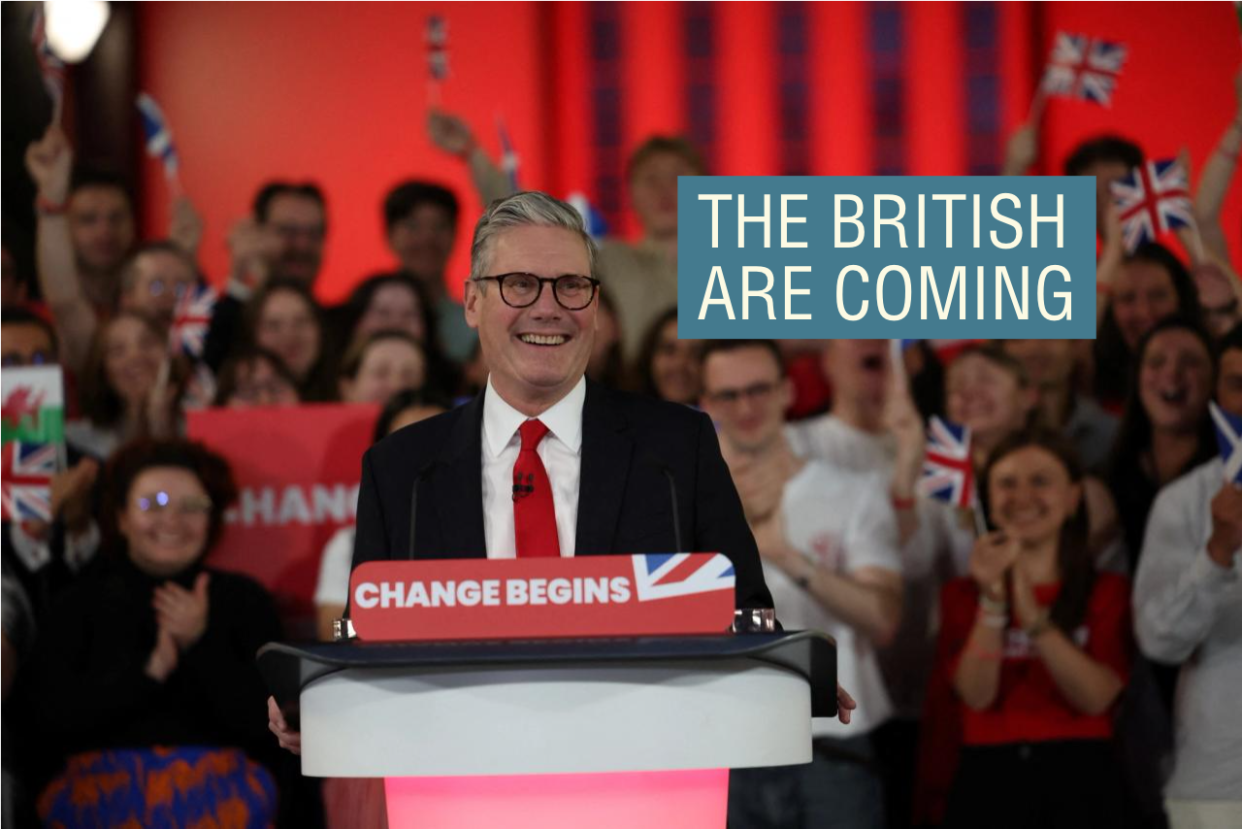Keir Starmer’s Labour aims for foreign policy ‘reset’

- Oops!Something went wrong.Please try again later.
- Oops!Something went wrong.Please try again later.
Insights from The New Statesman, Le Grand Continent, and Foreign Affairs
The News
After a historic victory in Thursday’s elections, Keir Starmer’s Labour Party has vowed to “reset” the UK’s foreign policy, and to prove that Britain is “back” on the world stage.
Starmer’s first week in office will be focused on the NATO summit in Washington, followed by a meeting with European leaders in the UK, testing Labour’s lofty foreign policy ambitions right off the bat.
“Our foreign policy would begin with three resets — with Europe, on climate and with the global south,” David Lammy, who was appointed foreign secretary on Friday, told the Financial Times.
Also on the agenda will be a “full audit” of Britain’s China policy, a reassessment of the UK’s military, and maintaining the country’s strong support for Ukraine.
SIGNALS
Labour pushes for security ties with Europe while avoiding divisive Brexit issues
Labour is seeking to sign new security agreements with France and Germany, and is also aiming to negotiate a defense pact with the European Union. The party sees these deals as “long-hanging fruit” in its effort to improve ties with the bloc, although the EU will likely be reluctant to offer the UK a special status post-Brexit that goes beyond what partners like the US, Canada, and Japan already have, experts at the Center for European Reform argued. This reluctance will also make Labour’s ambitions of removing trade barriers difficult. Europe is unlikely to accept UK efforts to “cherry-pick” access to its single market, an Atlantic Council expert wrote.
New foreign secretary touts ‘progressive realism’
David Lammy, who has been appointed as the UK’s head diplomat, has touted a doctrine of “progressive realism,” saying he will wield British power to fight climate change and bolster democracy worldwide. So far, Lammy has emerged as a canny operator, developing relationships with his European counterparts, hosting briefings for French officials, and tweeting in different languages to reach a wider audience. Lammy is friends with former US President Barack Obama, and is closely connected to Democratic leadership, while also quietly building ties to Republicans politicians, campaign aides, and think tanks that could play important roles in a potential second Trump administration.
Britain’s gradual decline may be hard to halt
However well Labour manages its immediate foreign policy priorities, it is unlikely to halt Britain’s fundamental decline, Irish journalist Fintal O’Toole argued in Foreign Affairs. Recent wage growth has been the lowest in any peacetime period since the Napoleonic Wars. Meanwhile, Starmer’s Labour has an “omerta” around the one thing that could provide a much needed economic boost: seeking to rejoin the EU’s single market or customs union, O’Toole wrote. The UK’s economic malaise has already limited Britain’s role on the world stage: Labour has no plans to reverse huge cuts to the country’s overseas aid budget, and questions remain about how the government will be able to fund increased defense spending.

